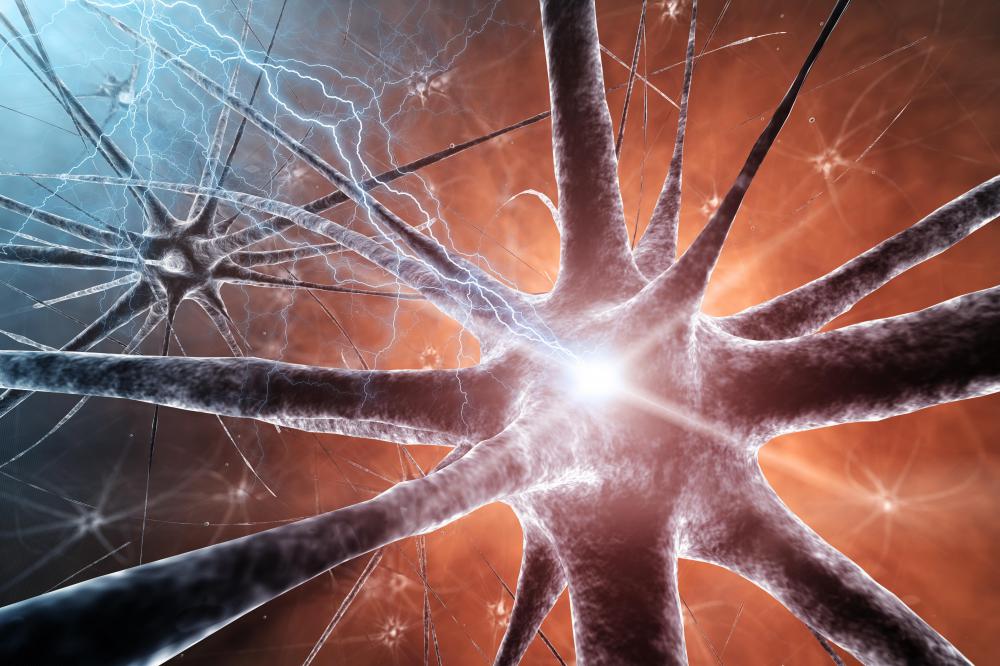At WiseGEEK, we're committed to delivering accurate, trustworthy information. Our expert-authored content is rigorously fact-checked and sourced from credible authorities. Discover how we uphold the highest standards in providing you with reliable knowledge.
What Is the Relationship between Neurotransmitters and Mood?
In the simplest sense, the relationship between neurotransmitters and mood is a “cause and effect” relationship, where the neurotransmitters can produce certain kinds of moods or emotions. The specific type and the amount of neurotransmitters are very important factors in influencing what kind of mood a person can experience. Aside from having an effect on emotions, neurotransmitters play a vital role in the nervous system because, essentially, they are the messengers running to and from the brain and the different parts of the body.
There are several types of neurotransmitters and they can be categorized simply as either “excitatory” or “inhibitory,” as they can pair up with certain receptors and produce certain moods. As the terms suggest, excitatory neurotransmitters “excite” or stimulate the brain, resulting in more active, though not necessarily positive, emotions. One example of excitatory neurotransmitters would be adrenaline, which is often associated with an energetic disposition and an increase in heart rate. Dopamine is another excitatory neurotransmitter that the brain releases after a person engages in enjoyable activities, such as eating, exercising, or a romantic date. Aside from the association of neurotransmitters and mood, memory, learning, and attention are also important processes that are affected by these neurotransmitters.

Inhibitory neurotransmitters, on the other hand, keep both excitatory neurotransmitters and mood in check and “inhibit” the latter neurotransmitters from sending out too many signals, producing a calming effect on mood. One of these neurotransmitters is the gamma amino butyric acid (GABA), assisting the neurons in re-stabilizing after receiving a spike of excitatory neurotransmitters and mood, which results in reduced anxiety and stress levels. Another inhibitory neurotransmitter is serotonin, a sufficient amount of which is said to promote feelings of happiness and peace and to prepare the body in winding down during sleeping hours.

The relationship between neurotransmitters and mood is a very important element not only for a person’s physiological health but psychological well-being as well. A sufficient and balanced level of neurotransmitters is key. For example, too much of excitatory neurotransmitters like dopamine and adrenaline can lead to schizophrenia and insomnia, because they often over-stimulate the brain. Low levels of inhibitory neurotransmitters like serotonin, on the other hand, are often seen in people suffering from depression, anxiety attacks, and obsessive compulsive disorder (OCD).

To combat irregular levels of neurotransmitters and moods, especially when they progress into psychological disorders, doctors often prescribe medication such as selective serotonin reuptake inhibitor (SSRI) or serotonin-norephinephrine reuptake inhibitors (SNRI), along with some counseling and behavior therapy. A healthy lifestyle is also very important, as food and exercise can prompt neurotransmitters to be released. For example, eating healthy proteins like fish, milk, and poultry can raise dopamine levels, while working out can signal the brain to release more serotonin and adrenaline.
AS FEATURED ON:
AS FEATURED ON:

















Discuss this Article
Post your comments